
In the Netherlands, left and right want referendums (again)

Five years after scrapping a referendum law, the Dutch parliament wants to introduce a new one. Whether it will come into force will only be clear after the elections. The Swiss political scientist Alice el-Wakil explains why referendums are not all the same.
SWI swissinfo.ch: In 2015, the Netherlands introduced a referendum law and abolished it just three years later. What happened?
Alice el-Wakil: It surprised me that the Netherlands scrapped the consultative referendum after just one vote, shortly before the second was due to take place. Like many people, I understood the reason was the European Union-Ukraine referendum [in 2016 on a treaty for closer political and economic ties between the bloc and Ukraine].
SWI: What happened there?
A. e-W.: The EU-Ukraine referendum was the first consultative referendum – and the first is rarely the best. Although public money was available for the pro and contra sides, there was a lack of experience in organising referendum campaigns. Afterwards, several studies showed that the campaign in favour was not very visible.
There was no quality debate. Some political parties were not aware that they also have a role to play in direct democracy. An understanding of direct democracy as something fundamentally different from representative democracy plays a role here.
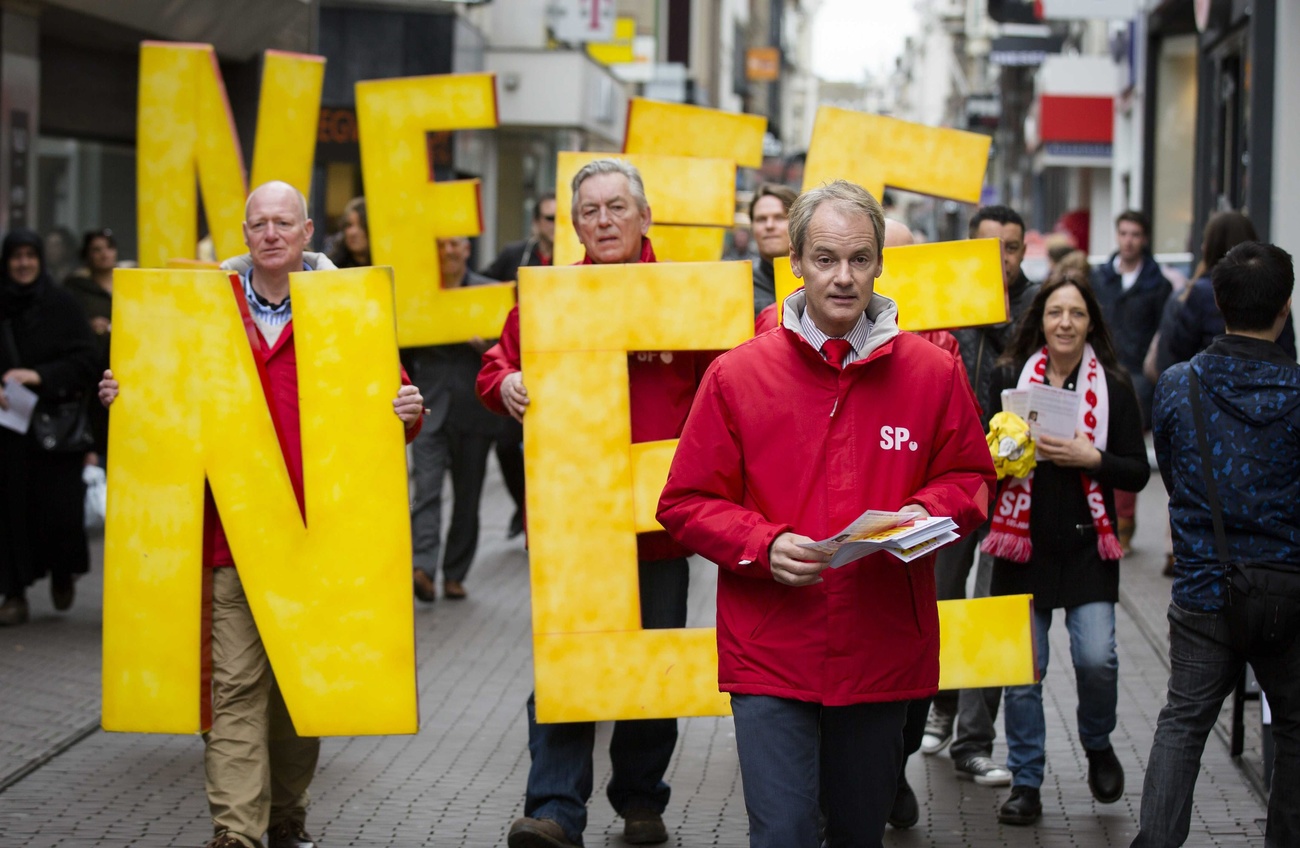
SWI: Elections take place in the Netherlands on November 22. After that, the new parliament will make a final decision on whether the country should reintroduce referendums. What kind of referendum is currently being discussed in the Netherlands?
A. e-W.: It is a corrective referendum – what we know in Switzerland as an optional referendum. After parliament has agreed on a law, a referendum to challenge it can be initiated by collecting signatures.

It’s surprising that a referendum law should be reintroduced so soon after scrapping referendums, but the debate on this issue never stopped.
The broader idea that representative democracy in the Netherlands needs to change is a constant issue. As early as 1986, a government advisory commission recommended the adoption of a binding corrective referendum.
The consultative referendum, which existed from 2015 to 2018, was a trial. Lessons were learnt from this. A referendum on an international treaty like the EU-Ukraine referendum can’t happen again. The new draft law excludes international agreements, taxes, the royal family and fundamental rights. In addition, the referendum now under discussion would be binding. The Dutch parliament recently debated whether it should act more as a “fire alarm” or an “emergency brake.”
SWI: What does that mean exactly, a fire alarm or an emergency brake?
A. e-W.: In the Netherlands, the idea of an emergency brake is advocated by those who only want a few referendums. Their position is that the referendum should only come into play in exceptional cases, when parliament has made a fatally flawed decision.

More
Swiss parliament: who is entitled to be represented?
SWI: So the image of the emergency brake compares the referendum to a last-minute life-saving measure. But you can also press a fire alarm by mistake.
A. e-W.: Exactly. The idea behind the fire alarm is that a parliamentary decision doesn’t necessarily have to be wrong in order for a referendum to be held. If a relevant group thinks it’s the wrong decision, that’s reason enough.
The democratic ideal behind this is that the referendum campaign will lead to an in-depth debate across society. The referendum then yields a decision as to whether a parliamentary bill finds a majority among voters.
It means the losing side still has the opportunity to express its arguments against the proposal and trigger a process. The fire alarm concept makes referendums more normal, so part of democratic representation.
SWI: In Switzerland, government wins in referendums are sometimes presented as positive, regardless of the content. Is it not problematic when the government’s position is seen as positive, per se?
A. e-W.: The idea of my dissertation, which draws on examples from the UK, the Netherlands and Switzerland to illustrate this, was to show why the referendum as an instrument can be in the interests of an entire population. Democratic theory is very sceptical of referendums because referendums are presented as something fundamentally separate. But this is not the case.
It’s unlikely that politicians elected by us – let alone an entire parliament – will represent us exactly as we want them to in every situation. Even if we are generally satisfied with their work.
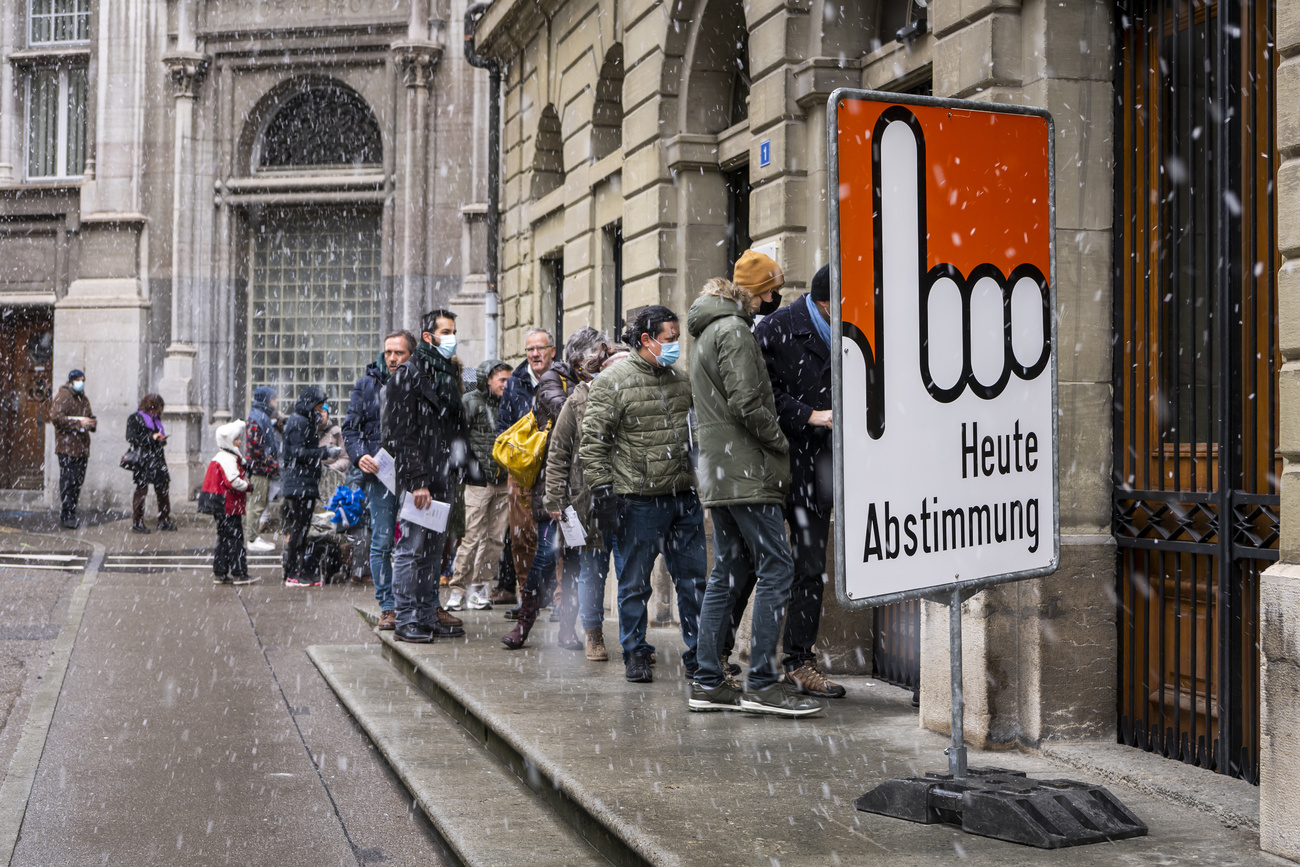
More
Why the Swiss have voted three times on the Covid-19 law
That’s why I favour the fire-alarm function of referendums. One group can have strong interests or feelings on certain issues. If parliament makes a decision that displeases one faction of society, I believe this group should be able to trigger an alarm.
A small minority then expresses that they do not feel represented, and the referendum makes it possible to check whether the majority feels represented on this issue.
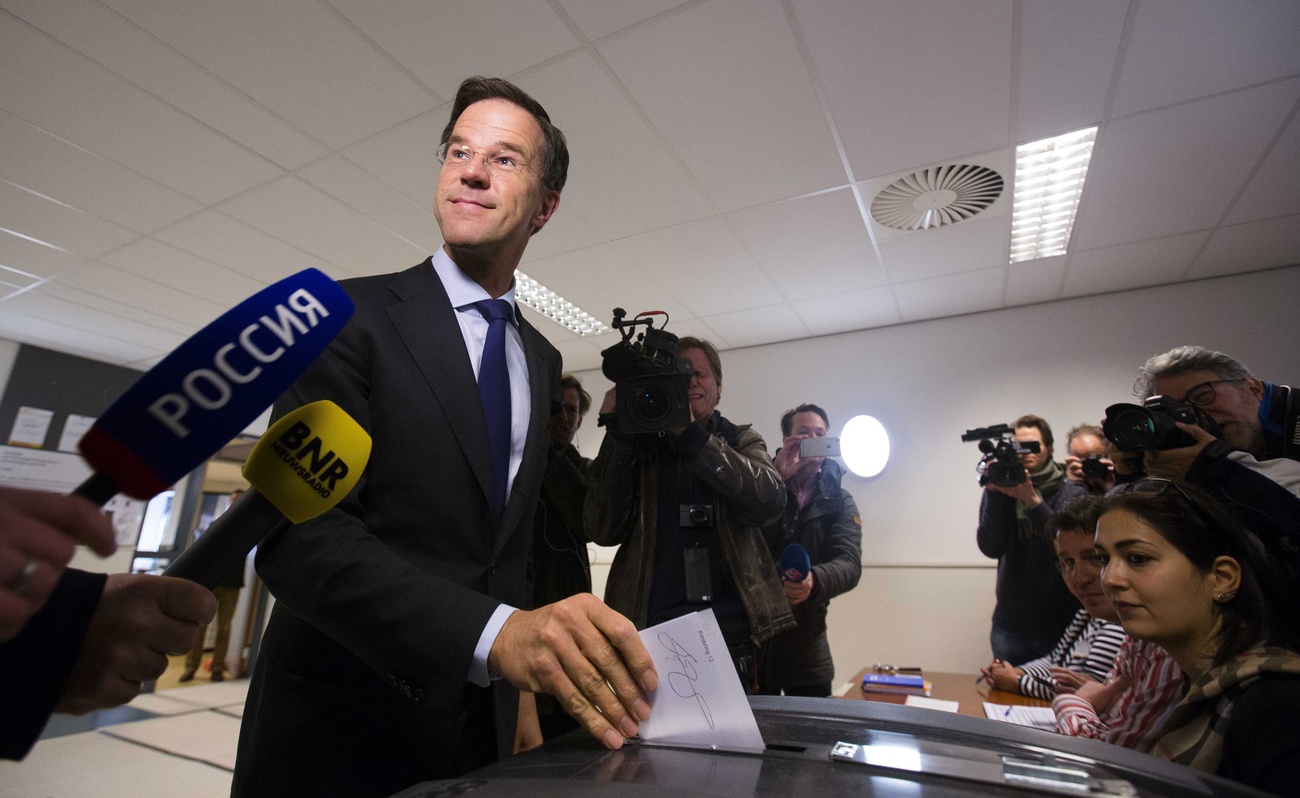
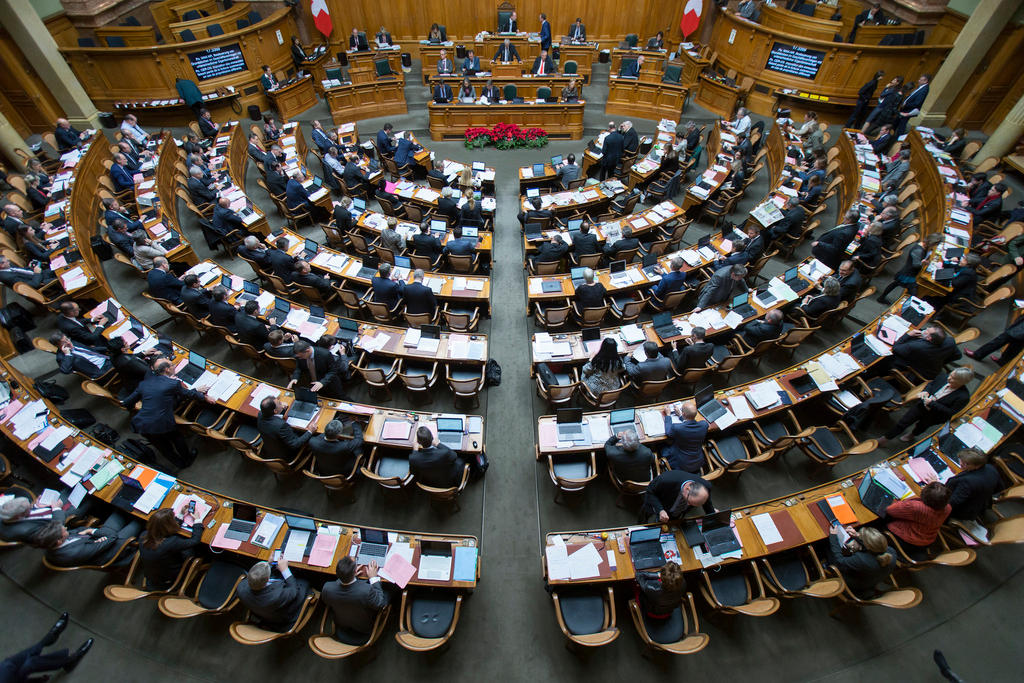
More
What’s the point of a parliament in a direct democracy?
SWI: According to a recent survey in the Netherlands, 99% of supporters of the right-wing populist Forum voor Democratie (Forum for Democracy), which has lately diminished in size, are in favour of the referendum, as are other right-wing populist circles. At the same time, left-wing parties such as the Socialistische Partij(Socialist Party)also support it. How does that work?
A. e-W.: It’s interesting that there are weird alliances between the left and the right. I see some good in this too, because it’s about constitutional issues that create the rules of the game for everyone. Broad agreement is important here.
SWI: Are these right-wing and left-wing groups even talking about the same thing when they call for more democracy?
A. e-W.: My impression is that they want the process for different reasons. In 2018, the Forum voor Democratie said that it wanted more referendums to take power away from professional politicians. That was explicitly about undermining representative democracy. Other arguments in favour are less about “the population versus the elite” and more about the question of how to bring professional politicians and the population together.
Representative democracy also means citizen participation through public debates on content and, depending on the case, participation in processes.
SWI: So there are different concepts of democracy behind this.
A. e-W.: Populist politics stands for “the elite is bad, the population is good.” That’s why populist parties call for referendums – as a means of rejecting the elite while demonstrating that they represent the people. The problem with this position is that those who advocate it are often not terribly interested in referendums.
In many places in Latin America where populists have called for direct democracy, they have not introduced referendums after the election. But it creates a campaign effect when someone says: “The people who should be representing us are not doing so. We are the true representatives of the people.” To populists, it’s often more important to take this stance than to concern themselves with referendum results.
SWI: If the new parliament reintroduces referendums, what does the Netherlands need to bear in mind for a new referendum process?
A. e-W.: The new referendum law creates binding decisions, so uncertainties about the consequences of plebiscites are eliminated, which is a good thing.
What is exciting about the current proposal in the Netherlands is that it doesn’t regulate further details. It is currently unclear how many signatures will be required, and whether a minimum turnout is needed for a decision to be valid. These details are to be regulated in a normal law as soon as the constitutional amendment is passed.
The idea behind this is that it will be easier to adapt these rules in future, without having to amend the constitution. Some have said that this is also to some extent a strategic decision, because previous attempts to introduce corrective referendum laws failed as a result of disputes over the institutional design.
However, it is precisely the details that are crucial. As a book on referendums in Latin America edited by the political scientists Fernando Tuesta Soldevilla and Yanina Welp puts it: the devil is in the detailExternal link.
The Dutch party spectrum is very fragmented and subject to regular change.
The retiring Mark Rutte is the longest-serving prime minister in the history of the Netherlands. In the latest pollsExternal link, his party, the conservative Volkspartij voor Vrijheid en Democratie (People’s Party for Freedom and Democracy), is only in second place.
The favourite in these elections is the former Christian Democrat Pieter Omtzigt. According to the latest polls, just under one in five people would vote for his new anti-establishment party.
GroenLinks-Partij van der Arbeid (Green Links-Labour Party) the alliance of two left-wing parties, is currently in third place. The right-wing populist Partij voor de Vrijheid follows some way behind.
The rural populist BoerBurgerBeweging (Farmer-Citizen Movement), which won the provincial elections in the spring, is now past its peak. It currently has 6.5%. It is followed by a further seven parties with poll ratings of between 2.5% and 5%, including the Socialistische Partij (Socialist Party) and the Forum voor Democratie.
Edited by David Eugster. Translated from German by Catherine Hickley.
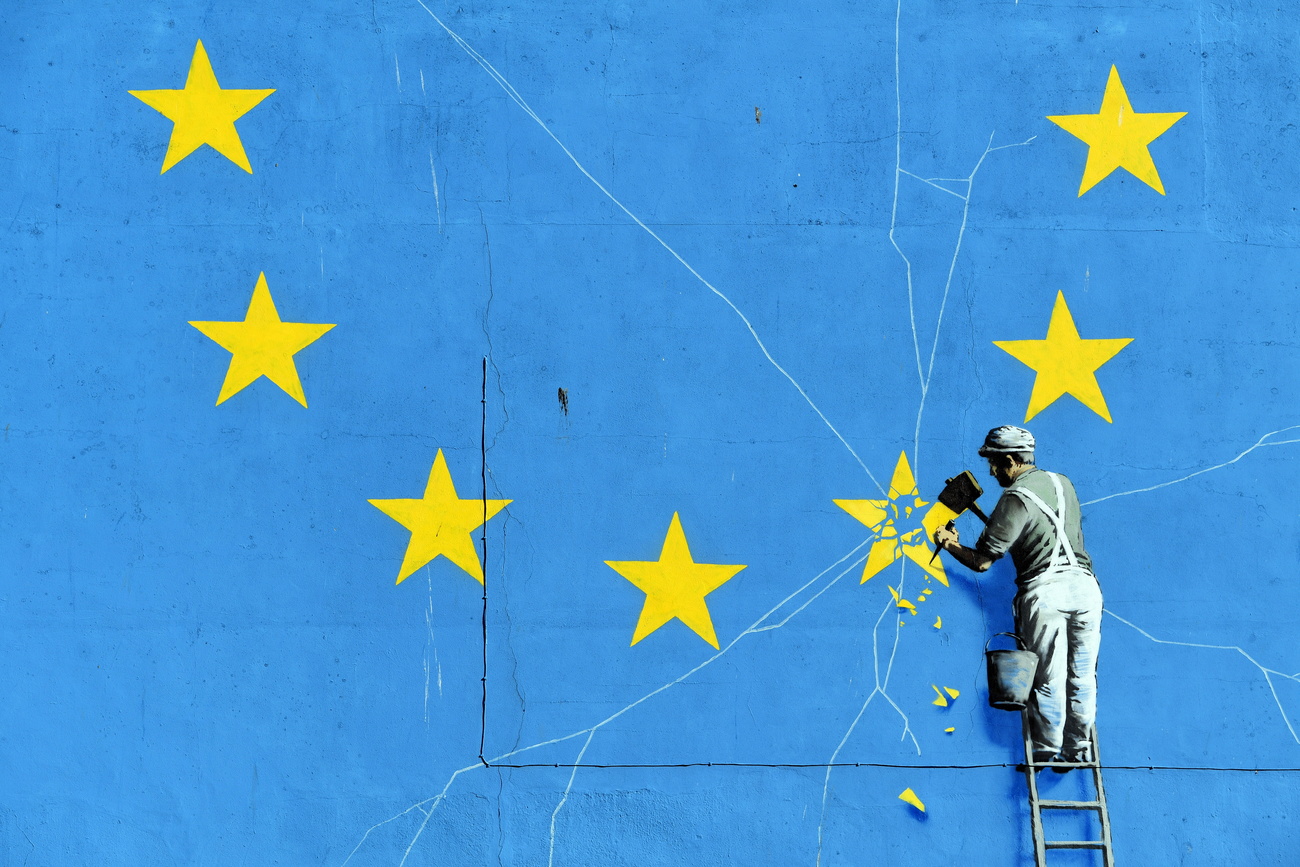
More
How referendums have shaped the European project

In compliance with the JTI standards
More: SWI swissinfo.ch certified by the Journalism Trust Initiative






























You can find an overview of ongoing debates with our journalists here . Please join us!
If you want to start a conversation about a topic raised in this article or want to report factual errors, email us at english@swissinfo.ch.